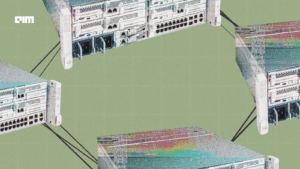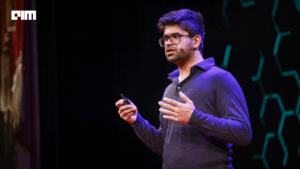One month after Meta invested $14.3 billion in Scale AI and recruited its high-profile CEO, Alexandr Wang, to lead a new superintelligence division, the data infrastructure startup has laid off 14% of its full-time workforce and ended contracts with 500 external workers.
The restructuring, announced in an internal memo obtained by multiple outlets, affects approximately 200 full-time employees and comes amid growing concerns over client retention, leadership churn, and strategic confusion within Scale’s generative AI division, a unit that until recently powered projects for clients including xAI, Google, and OpenAI.
“These changes will make us more nimble enabling us to react more quickly to shifts in the market and customer needs,” interim CEO Jason Droege wrote in a company-wide memo viewed by CNBC. “This structure will allow us to better serve the customers we have today and win back customers that have slowed down work with us.”
But behind the sanitized language of corporate restructuring lies a deeper contradiction: Scale AI is eliminating jobs in the very segment that positioned it as indispensable to the AI boom, and it’s doing so after receiving one of the largest private investments ever made in a generative AI company.
A Sudden Reset After Sudden Expansion
Founded in 2016, Scale AI built its reputation as the behind-the-scenes engine powering AI development at nearly every major lab. Its core business human-in-the-loop data annotation became the supply chain for model training across OpenAI, Google DeepMind, Meta, and Anthropic. That infrastructure fueled rapid expansion. In the past year alone, the company scaled its GenAI team to 16 distinct pods, launched major client projects, and crossed $870 million in revenue in 2024, with projections of hitting $2 billion this year, according to Bloomberg.
Yet that same pace of growth, Scale now admits, created layers of organizational sprawl and internal confusion. “We ramped up our GenAI capacity too quickly over the past year,” Droege acknowledged in his memo to staff. “While that felt like the right decision at the time, it’s clear this approach created inefficiencies and redundancies.”
The reorganization will consolidate the 16 pods into five key areas: code, languages, experts, experimental, and audio. Droege also noted the company would overhaul its go-to-market team into a unified “demand generation” function, covering enterprise and government customers.
Employee Lockouts and Leadership Exodus
The layoffs were executed abruptly. According to internal emails reported by Business Insider, affected employees received personal notices by 8 a.m. Pacific Time, with badge and IT access deactivated before many had logged on for the day. “Please do not come into the office,” Droege instructed in the email, emphasizing the need to give affected staff “space.”
Laid-off employees will continue receiving pay through September 15, with an additional four weeks of severance if they agree to Scale’s exit terms, according to a separate email reviewed by BI.
The restructuring follows a wave of high-level departures. Alongside Wang’s move to Meta, multiple vice presidents, chiefs of staff, and researchers have quietly exited the company, according to LinkedIn records and sources cited by Business Insider. The leadership drain has left internal teams in flux, particularly in the GenAI division, which was once the company’s most visible engine of growth.
Client Pullback After Meta’s Entry
The layoffs come at a moment of fragility in Scale’s client relationships. In the weeks following Meta’s $14.3 billion investment which gave it a 49% equity stake several of Scale’s most high-profile customers began phasing out their contracts.
Google has reportedly curtailed its use of Scale’s data services, citing potential conflicts stemming from Meta’s stake, according to Reuters. OpenAI, a longtime customer, has also wound down its work with the company over the past year. These exits are particularly significant given that Scale’s core value proposition, its neutrality and reliability across competitors now appears compromised in the eyes of some buyers.
“There’s been a definite uptick in interest from customers looking for alternatives,” a representative from a competing data labeling firm told Bloomberg. That sentiment is echoed across a field of emerging rivals, including Labelbox, Turing, Invisible Technologies, and Uber’s data services division, all of which have gained traction in the wake of the Meta-Scale deal.
Commanding Heights to Strategic Retrenchment
Scale’s interim leadership maintains that the company is still in a strong financial position. “We remain a well-resourced, well-funded company,” Droege wrote in his internal note. Spokesperson Joe Osborne echoed that in multiple press statements, emphasizing that the company is “streamlining our data business to help us move faster” and plans to “significantly increase investment and hiring” in its enterprise and government sectors in the second half of 2025.
Those sectors, which include work with U.S. defense agencies and international public sector organizations, are reportedly already generating nine-figure revenues. Osborne confirmed that hundreds of new roles will be opened in those areas, even as the GenAI division shrinks.
Still, for many employees, the shift feels like a fundamental break from the company’s past identity.
“What made Scale feel different was how closely connected Alexandr Wang was to the hiring process,” one laid-off employee told Business Insider. “His belief in people-first thinking was something many of us truly respected. Now it just feels hollow.”
They are visible in broken customer contracts, a downsized GenAI team, and the departure of key technical and operational leaders. For a company long regarded as the AI industry’s most dependable data vendor, the aftershocks of the Meta deal have already redrawn the commercial and cultural landscape.
What remains unclear is what exactly the $14.3 billion investment was meant to build, if the first major act following it was to dismantle the very team that helped Scale win and support clients like OpenAI, xAI, and Google. Scale says it is “streamlining” its data business to focus on its most profitable opportunities. But those opportunities were being executed by many of the same employees who were abruptly cut, sometimes without warning before their workday began.
A former Scale AI employee captured the confusion in a widely shared LinkedIn post:
“What made Scale feel different was how closely connected Alexandr Wang, our former CEO, was to the recruiting team and hiring efforts. His belief in talent and people-first thinking was something many of us truly respected. Now it just feels hollow.”
In his memo to employees, interim CEO Jason Droege framed the cuts as necessary to “serve the customers we have today and win back customers that have slowed down work with us.” But for those on the inside, the contradiction remains: the company let go of the very people who built what it now claims it must recover.
In his memo to employees, interim CEO Jason Droege acknowledged the internal bloat that had built up over the past year. “We created too many layers, excessive bureaucracy, and unhelpful confusion about the team’s mission,” he wrote.
The explanation was intended to justify the layoffs. But for many inside Scale, it raised a more unsettling question: if this was the team entrusted with Scale’s most ambitious AI initiatives, why were they the first to be cut just weeks after a record-setting investment?










